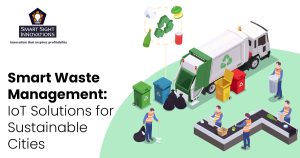 Data has become the soul of successful business and machine learning can help in unlocking the value of a corporate, customer or commercial data. Thus increasing data-driven decisions and giving firms a competitive edge. Data is a wide range of things, including words, figures, pictures and clicks. Machine learning systems create models from sample data to make predictions or choices. These techniques use statistics to explore patterns in huge volumes of data. Anything that can be saved digitally can be instructed to a machine learning system.
Data has become the soul of successful business and machine learning can help in unlocking the value of a corporate, customer or commercial data. Thus increasing data-driven decisions and giving firms a competitive edge. Data is a wide range of things, including words, figures, pictures and clicks. Machine learning systems create models from sample data to make predictions or choices. These techniques use statistics to explore patterns in huge volumes of data. Anything that can be saved digitally can be instructed to a machine learning system.
The ideal method to develop or practice machine learning skills is by participating in kaggle competitions. Kaggle is the largest data scientist and machine learning community in the world run by Google, Inc. It started by hosting machine learning competitions, however, currently it also provides a public data platform, a cloud-based workbench for data science and brief AI courses. Kaggle is not only for competitions but it has a large community willing to share their knowledge.
How Does It Work?
Upon registering for kaggle you can browse the current and previous contests. These contests are genuine competitions with real-time leaderboards and at times actual awards. Rewards totaling $100,000 were awarded in a contest hosted by the TwoSigma company and in another instance, $65,000 was rewarded by Santander Bank for the best case study solutions.
In a competition, a particular machine learning issue has to be resolved. You have to either find the AI model that best fits the particular circumstance or implement a good technique along with accuracy. Mosty each user submits their solutions and places themselves in the overall ranking. While in some competitions, you can sign up as a team and the team member’s average results are counted towards the final score.
The datasets that participants should use to create their models are always shared by the competition’s creators. They are separated into train and test sets. The test dataset is a tiny portion of the final dataset on which a solution is tested, whereas the train dataset contains both properties and the answers. You can download these datasets and apply them to your machine learning projects by using kaggle notebooks in your browser or kaggle’s accessible API.
Types of Kaggle Competitions
There are two ways to evaluate results due to data security and potential fraud.
- The first one is a traditional tournament where only the final results are significant. Here, a user tests their machine learning model locally, creates a file with the final predictions for the answers and uploads it to the kaggle website.
- The second type is a kernel (a computer program) based competition. In this, you build an online script with your code that carries out the pattern development and data evaluation. The kaggle servers then assess your script. This kind of competition is a little tougher and more complicated because your solution must be compact and CPU-memory efficient.
Here are some of the most engaging kaggle tournaments in recent times:
- Quora Insincere Questions Classification
- Two Sigma: Using News to Predict Stock Movements
- Airbus Ship Detection Challenge
- Home Credit Default Risk
- Digit Recognizer
Configuring and Using Kaggle Notebooks
The steps to create kaggle notebooks are as below:
- You must first create a kaggle account, either by linking an existing Google account or by using your email.
- Then go to the “code” page under it. Here you will be able to see your notebooks along with public notebooks.
- To create your notebook, click on “new notebook”. This will create your new notebook similar to a Jupyter notebook (a web-based interactive computing platform) with many identical commands and shortcuts.
Kaggle offers a huge library of datasets for machine learning that users and contestants have contributed. It has a public API with a CLI tool (command-line interface that accepts text input to run programs) which can be used to download datasets and connect with competitions. There are some datasets that are large in size and you may not want to store in your drive. However, kaggle offers this as one of their free resources for your machine learning projects.
Benefits of Kaggle
Kaggle includes several benefits.
1. Data
Kaggle offers a list of datasets for use on their website and alternatively you could also search a specific dataset. A majority of the datasets are CSV (comma-separated value) files. Some of the other valuable datasets are in the JSON format, SQLite, archives and BigQuery. Practicing with different file types will be useful.
GDP Growth around the Globe, Diabetes dataset, Salary prediction are some of the trending datasets.
2. Code
There are countless codes available in kaggle and they are usually found in notebook form (in a .ipynb file). Most data scientists use this method frequently as it has a simple and understandable framework. Some of these include data intake and cleansing, data analysis, construction of the basic model, execution of the final machine learning model and output and result interpretation. The code languages supported on kaggle are Python, R, SQLite and Julia.
3. Community
Kaggle also serves as a community just like GitHub, Stack Overflow and LinkedIn. Data analysts, data scientists and machine learning engineers gather here to grow professionally. You can share your work (data, code and notebooks) and post it online to expand your community.
4. Inspiration
The data, programming, community, training and competition that benefits individuals or businesses are incredibly motivating. If you are unsure about how to carry out a given task, you can find everything in one place and also see how someone might use a specific model, thus inspiring you to produce better work.
5. Competition
As mentioned earlier kaggle offers numerous competition where you can test yourself, see how you rank and help people
6. Courses
Kaggle also offers some data science courses and there are around 14 courses that you can take. To mention a few:
- Python
- Intro to Machine Learning
- Feature Learning
- Intro to SQL
- Advanced SQL
- Micro Challenges














